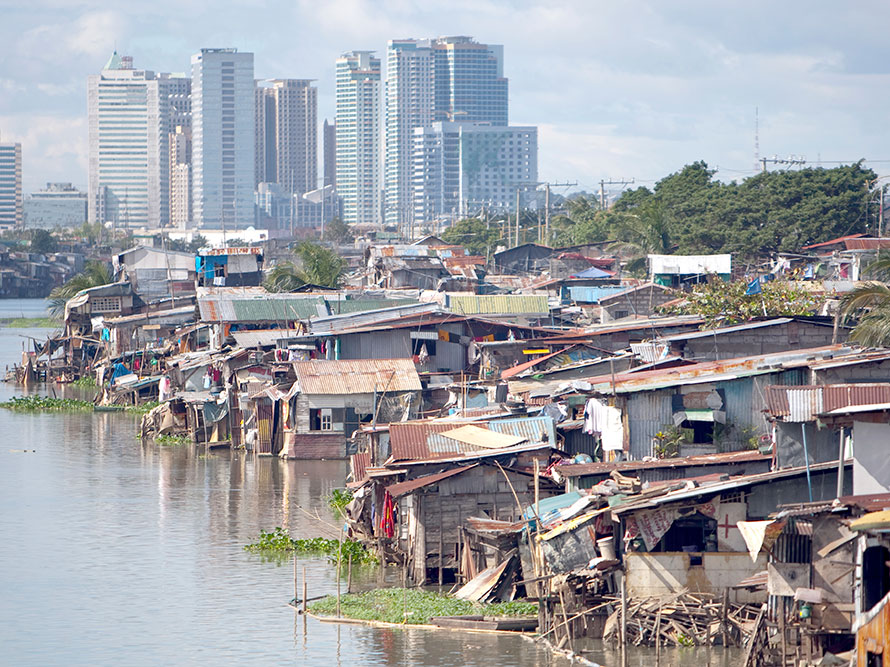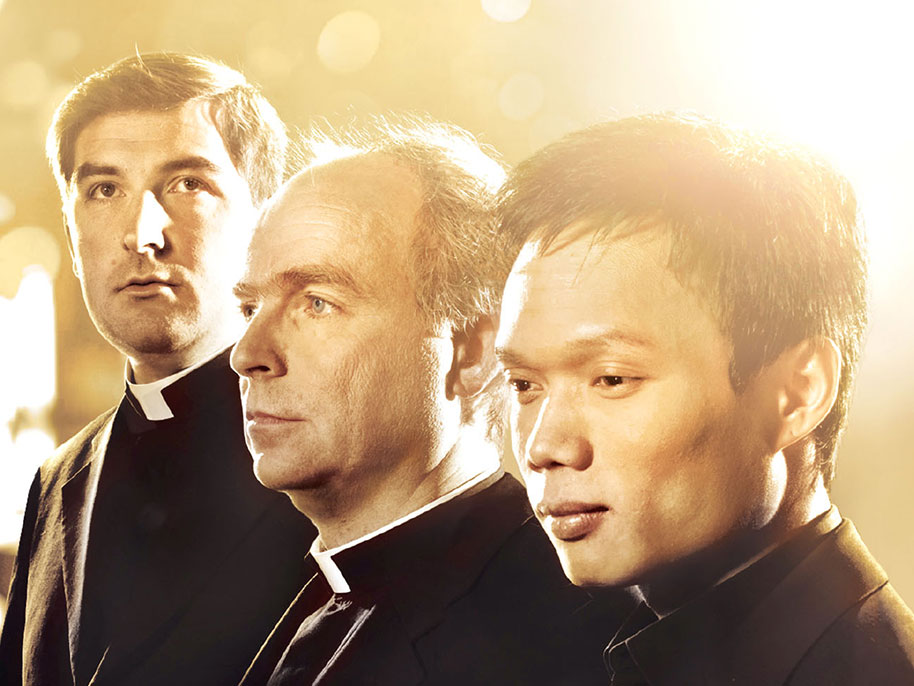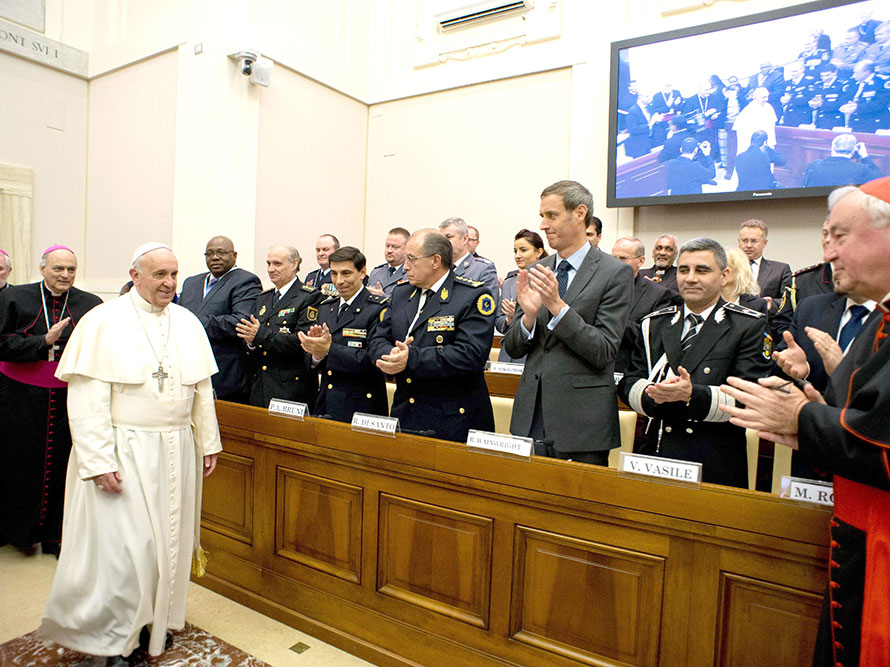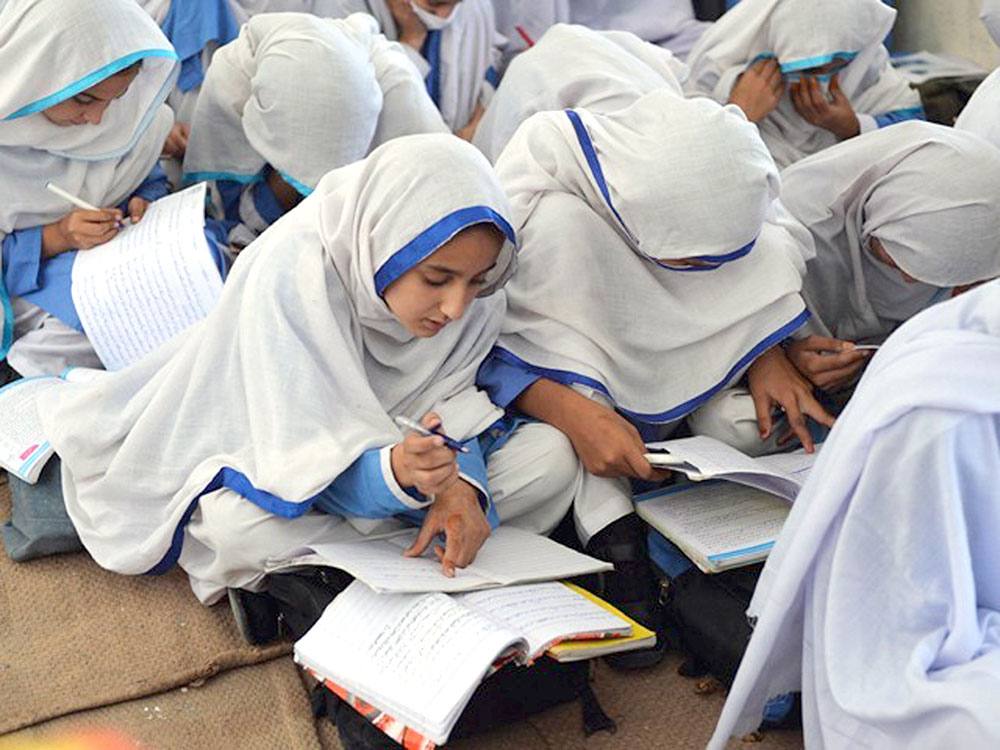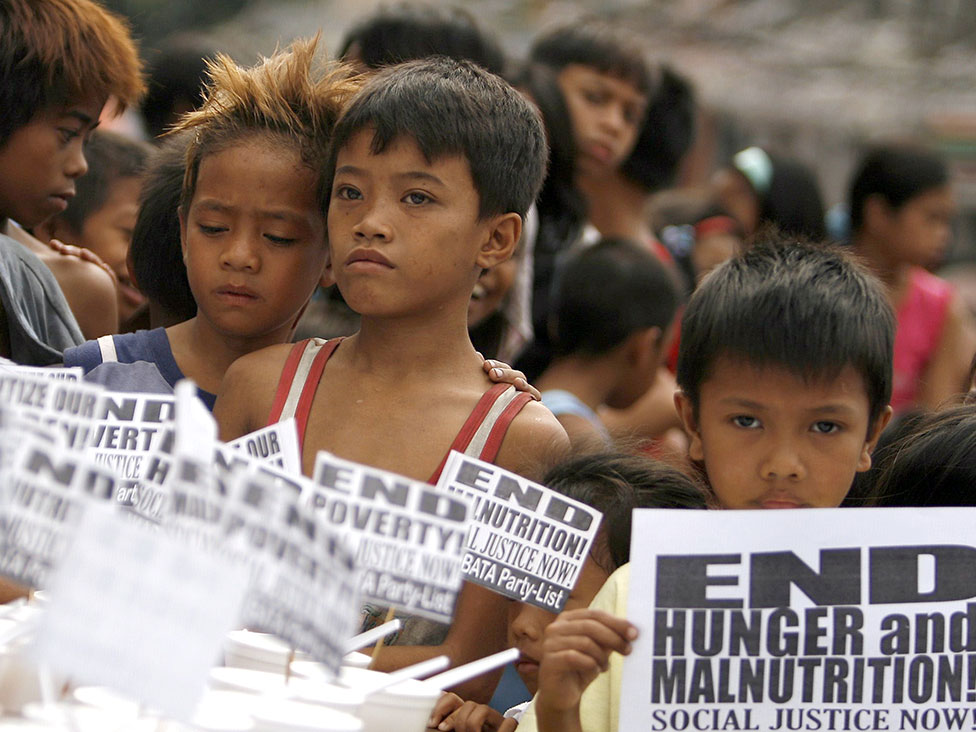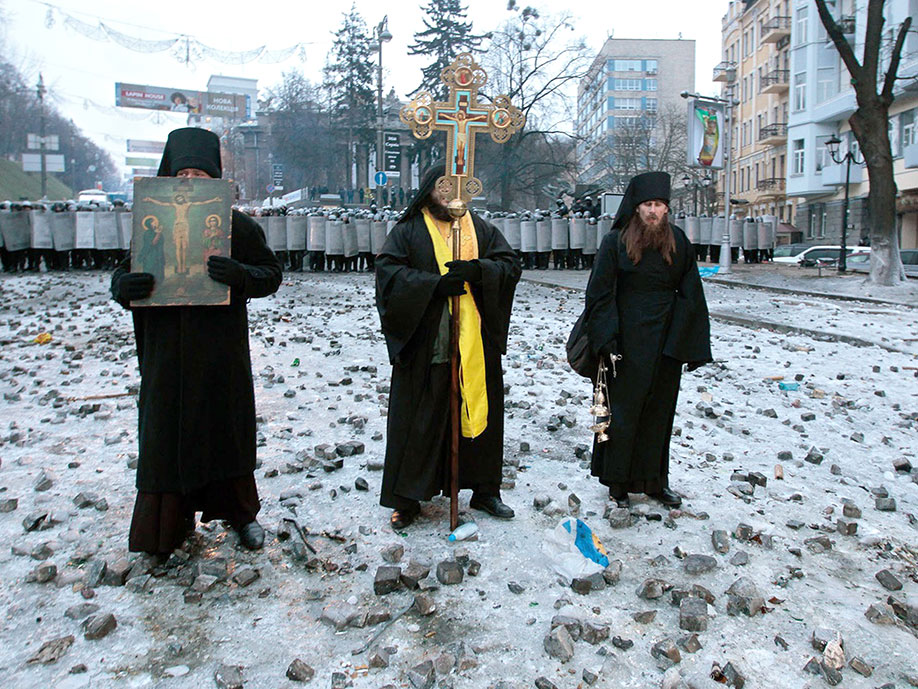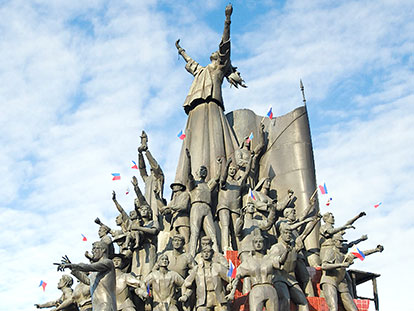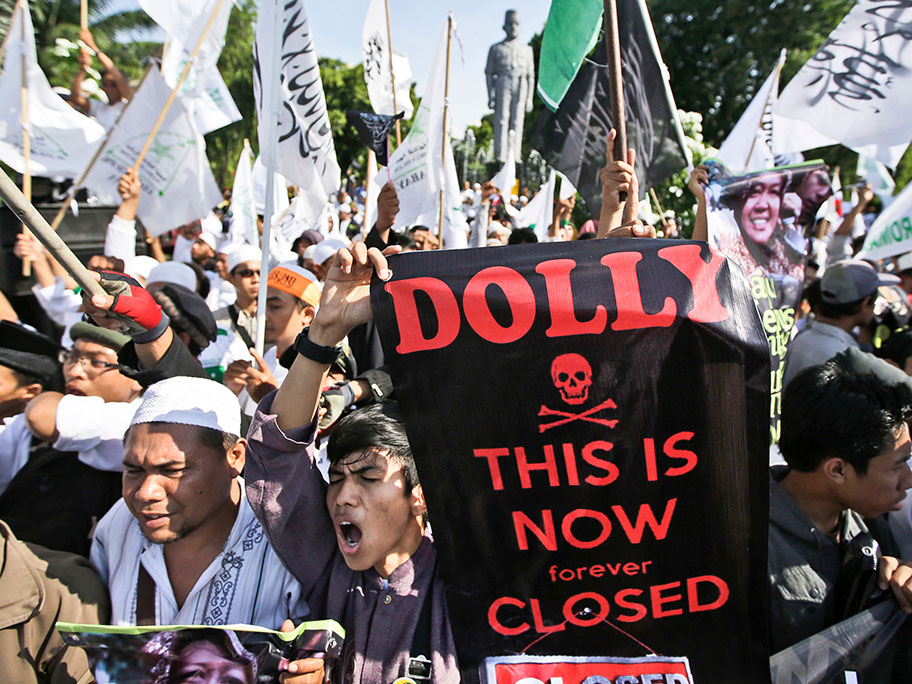Among the many important things Pope Francis says in his new Apostolic Exhortation Evangelii Gaudium (2013) [hereafter: Ev. Gaud.], there is a dramatic section (paragraphs 53-60) that lay down a challenge to the way in which we do business in the world. Drawing on Catholic Social Thought’s [CST] considerable engagement with the new global economy, echoing his predecessors John Paul II and Benedict XVI, Francis launches a withering broadside against the underlying values of much of contemporary capitalism, values epitomized in the 1980’s slogan “Greed is good.”
Francis’ statements have already generated a stormy reaction from defenders of the status quo. In the imaginings of the religious rightwing, he has already gained the reputation for being liberal; with this new document he has – echoing the response of some to John XXIII’s 1961 encyclical Mater et Magistra – been accused of being a Marxist, of ‘going too far.’ In my analysis of Francis, I am going to suggest two things: first, that he hasn’t ‘gone too far,’ that he isn’t quite ‘Marxist’ enough (whatever that means!); second, that he opens up for us a challenge – to rethink our world capitalist system from a new perspective.
Greed is not good, Francis (and CST) replies. Ruthless pursuit of wealth at others’ expense is anti-human and possibly murderous. Let us look at what Francis says, using his own subheadings in the Exhortation.
The Economy of Exclusion. Francis bluntly states: “Just as the commandment ‘Thou shalt not kill’ sets a clear limit in order to safeguard the value of human life, today we also have to say ‘thou shalt not’ to an economy of exclusion and inequality. Such an economy kills” (Ev. Gaud., n. 53). For him, the contemporary global economy is homicidal. This is because “today everything comes under the laws of competition and the survival of the fittest, where the powerful feed upon the powerless. As a consequence, masses of people find themselves excluded and marginalised: without work, without possibilities, without any means of escape” (Ev. Gaud., n. 53). Human beings are literally part of a ‘throw away’ culture. Those who are poor are not simply exploited, but irrelevant: less than human.
Echoing the views of a range of economists (not all of them Marxist by any stretch of the imagination), he hones in on the ‘trickle down’ theories of economics that dominate the global consensus today. The claim that such models bring about greater justice and inclusiveness, he suggests, “[have] never been confirmed by the facts” and “[express] a crude and naïve trust in the goodness of those wielding economic power and in the sacralised workings of the prevailing economic system” (Ev. Gaud., n. 54). Many economists would agree with him, noting the degree to which ‘trickle down’ theory has become an act of blind faith in what may be a selective and distorted understanding of 18th century economist Adam Smith’s ‘invisible hand’ of the market. Some would also note that contemporary free marketers, while embracing “The Wealth of Nations,” conveniently omit Smith’s other great work “Moral Sentiments” (1759), much of which stands opposed to the crude Social Darwinist’s assumptions at the heart of radical free market thinking.
Francis warns that “To sustain a lifestyle which excludes others, or to sustain enthusiasm for that selfish ideal, a globalisation of indifference has developed. Almost without being aware of it, we end up being incapable of feeling compassion at the outcry of the poor, weeping for other people’s pain, and feeling a need to help them, as though all this were someone else’s responsibility and not our own. The culture of prosperity deadens us; we are thrilled if the market offers us something new to purchase. In the meantime all those lives stunted for lack of opportunity seem a mere spectacle; they fail to move us” (Ev.Gaud., n. 54). What he rejects, then, is not the free market as such but the way in which the current world economy dulls our sensitivity to the Other, particularly the poor. We become obsessed with our own wealth to the exclusion of the Other. In short, the principles properly understood as the moral virtues of self-care and fidelity take no prudent account of the principle of justice. The resulting imbalance leads to distortion (called vice) that puts the common good of all in jeopardy.
No to the idolatry of money. “The current financial crisis can make us overlook the fact that it originated in a profound human crisis: the denial of the primacy of the human person! We have created new idols. The worship of the ancient golden calf (cf. Ex 32: 1–35) has returned in a new and ruthless guise in the idolatry of money and the dictatorship of an impersonal economy lacking a truly human purpose. The worldwide crisis affecting finance and the economy lays bare their imbalances and, above all, their lack of real concern for human beings; man is reduced to one of his needs alone: consumption” (Ev.Gaud., n. 55).
We worship money since access to it feeds our drive to consume. By insisting on the absolute autonomy of the market, unrestrained financial speculation and refusal to allow any concept of common good to guide the economy, a “new tyranny” is born with its own rules and laws (Ev. Gaud., n. 56). While making a few rich (and perhaps some more slightly better off), it creates massive debts, opens the economy to corruption and tax evasion and can harm the environment through its relentless pursuit of wealth. The result, Francis observes, is a massive gap between rich and poor, which in many countries is growing.
Now, on one level, a consumer society can be a good thing: demand for goods and services create jobs, and the desire for such goods motivates people to work. Work, CST reminds us, is a good thing; at its best it can even be creative. Where the problem arises is when honest labor is inadequately rewarded, and where consumption for its own sake leads to the destruction of the environment. Many of the new economies, like India and China, have emerged as a result of a desire for economic growth rooted in production of consumer goods sold at prices far below rival economies. This is achieved through a combination of low wages for workers (often in less than ideal work environments) and a disregard for long-term ecological sustainability. In both countries (particularly in China), economic advance is part of a political agenda driven by government in alliance with corporations, with poor labor conditions and inadequate environmental safety enforced by law. Ordinary people largely comply because they are driven by the (completely reasonable and legitimate) desire to improve their material conditions of life. Money is needed for survival and for consumer goods. For many, however, these desires are a market-driven illusion, a delusion of well-being that hides a consumption system that keeps poor people indebted – and to meet these debts forced into an individual survivalist mode that makes notions of human solidarity too costly to contemplate.
Significantly, in many new economies, socio-economic conditions have improved ordinary lives, with millions moving out of poverty – but with corporate elites improving even more, with the resultant increase in the rich-poor gap. Similarly, while new middle classes have also emerged in their millions worldwide, many of this new class are caught between the desire to improve materially through increased consumption and highly competitive export-driven markets that put their jobs (as much as the jobs of working people) at permanent risk. The result is a back-and-forth consumption and desperate attempts to match spending with often precarious incomes. It’s been said that many of the new global middle class live two months away from poverty.
No to a financial system that rules rather than serves. The world economy, global production and consumption, rests on money. Technology makes money able to move in split seconds from one end of the planet to the other, to wherever it can make better profits.
The global financial system masks a worldview, suggests Francis, rooted in “a rejection of ethics and a rejection of God” (Ev. Gaud., n. 57). Instead of an economy rooted in moral values, the global system seems to him to tailor its ‘ethics’ to suit itself, namely the creation of more money. Often this is not even rooted in what money can produce (goods and services) but on speculations on the imagined value of currency itself.
It is also, says Francis, an implicit rejection of God who “calls human beings to their full realisation and to freedom from all forms of enslavement” (Ibid.) of working people and middle class alike. What Francis would like to see is an economy that takes seriously the early Church theologian John Chrysostom’s words: “Not to share one’s wealth with the poor is to steal from them and to take away their livelihood. It is not our own goods which we hold, but theirs.” The rich have a social obligation to help, respect and promote the poor in a spirit of “generous solidarity”. In short, “Money must serve, not rule!” (Ev. Gaud., n. 58).
Francis echoes the sentiments of his predecessor, Benedict XVI, whose encyclical Caritas in Veritate (2009) highlighted the lack of serious regulation of money markets and financial speculation that led, inter alia, to the Wall Street crisis at the beginning of this century. While (once again) not condemning such activities outright, Benedict warned that corruption, combined with a disregard for the common good, was a key factor in the crisis. Many economists concurred, arguing that unregulated speculation had to stop. Ordinary people agreed, thousands of them taking part in the ‘Occupy Wall Street’ protests. Contrary to the complaints of the right wing, most were not socialists but citizens who felt that regulation was needed to control the excesses of capitalism gone wild.
No to the inequality that spawns violence. The existing world economic order, Pope Francis observes, creates violence. There is much talk today about national and international security, but without a more humane global economy, the prospects of peace are slim: “…Until exclusion and inequality in society and between peoples are reversed, it will be impossible to eliminate violence. The poor and the poorer peoples are accused of violence, yet without equal opportunities, the different forms of aggression and conflict will find a fertile terrain for growth and, eventually, explode. When a society – whether local, national or global – is willing to leave a part of itself on the fringes, no political programs or resources spent on law enforcement or surveillance systems can indefinitely guarantee tranquillity” (Ev. Gaud., n. 59). Violent reaction to the violence of poor people who struggle for their survival will never solve the problem. This is not a new insight. Brazilian Bishop Hélder Câmara warned, back in the 1960’s, of what he termed a ‘spiral of violence’ – the structural violence of injustice generates the violence of revolt, leading to the violence of repression and further structural violence, which then repeats the cycle. He noted how the great gaps between rich and poor generated violence.
Francis is also perhaps looking towards the present-day reality of fundamentalist religiously-motivated terrorism. One (and let me emphasise only one) of the key factors for its rise in the Muslim world is the gap between rich, westernised elites and the masses. On a global economic level, the West is seen by such adherents as the source of their inequality and the polar opposite of the moral values they have imbibed. Similarly, in the United States right wing militia movements emerge from a core sense of marginality, of being the economic and political victims of the ‘American Dream’, expressed often in a Christian fundamentalism that rationalises their revolt against a system that they believe has rejected them. Though expressed religiously, the ideology of new terrorism is rooted in resentment and rejection of a social order that makes them vulnerable to the forces of an unrestrained global market. Both, I would add (but cannot develop further here), offer false solutions: a populist fascist program based on distorted religious ideology.
Some experts, Francis notes, see the solution to poverty in education. But while education and skills acquisition is essential for anyone seeking an escape from poverty, education for the labor market will not be effective in the long run, particularly when poor people see – in so many societies – how governments, businesses and other institutions have become corrupted by their pursuit of wealth, power and conspicuous consumption (Ev. Gaud., n. 60). Though he doesn’t say so, I think Francis senses that if education brings poor people into the existing social order without changing the order itself, the system will simply replicate itself. A ‘new’ middle class may emerge, but at whose expense? Francis’ observations resonate with the view that, if one is honest, education always has a hidden agenda, a hidden curriculum that reflects the dominant social ideologies.
A closer examination reveals that this is no conspiracy theory. Apart from subjects (like Civics or Life Skills or even Religious Education, I dare say it) which overtly promote certain values like patriotism, civil responsibility and piety (all too often in conformity with dominant social attitudes), education systems promote certain subjects and downgrade others. Science, commerce and technology are in, humanities and practical skills are out. However, while the former are essential to a successful economy, there are just so many jobs available in accountancy and IT. A cynic might add that a glut of ITs, lawyers and accountants drops the salaries in the field – good for employers! Ironically what is often in short supply are people qualified in practical skills (plumbers, electricians, carpenters), but these professions are not considered high status enough and often not as well paying. Humanities, subjects promoting critical thinking, are out. Not only are they unprofitable and ‘useless’ (though, at their best, they teach problem-solving and lateral thinking), they may offer the world something that could destabilize the social order: questioning whether there is, indeed, no alternative.
A conclusion and a few tentative proposals. Many observers have suggested that Evangelii Gaudium is Pope Francis’ agenda for his pontificate. In this short essay, I have focused on one single theme: Francis’ critique of the world economy. With Francis, we have a pope who has placed the ‘option for the poor,’ so popular to Liberation Theology and a central pastoral concern of the Church in Latin America and the global South, firmly at the centre. Some might even suggest that he has put Liberation Theology back into the heart of Christian orthodoxy. While I’d like to think the latter is true, it must be noted that Evangelii Gaudium’s approach is also central to the dominant themes of the last 123 years of CST – and the social ethics of early Church theologians: human dignity, solidarity, the common good, the dignity of work and the priority of labor.
It is also true that though Francis uses such a theological-political critique, he does not offer ‘old’ solutions. He is all too aware of the failure of traditional Marxist solutions, even if (as many mainstream economists now agree) Marx’s analysis of capitalism still has much to recommend it. What is clear is that he is also well aware of the faults of neo-liberalism. The solution to the current malaise is by no means simple. The challenge he presents us is to use the analytical tools of CST (and, I would suggest, Liberation Theology) to hammer out a new global economy, a new moral economy.
What might it look like? Following Francis, I think it must start with the option for the poor and the principle of human dignity. Given the ecological crisis (which is real, not an alarmist fantasy as some still claim), we will have to rethink our obsession with overconsumption and focus on an ecologically sustainable economy that narrows the gap – the gap often ‘bridged’ by violence – between rich and poor. Capitalism, particularly financial markets, will need to be regulated more. We cannot afford another ‘Wall Street’ (or ‘Shanghai’ or… name your stock exchange): it’s not good for business and disaster for ordinary people. Education must focus on a combination of multiple skills training with critical thinking – to create multi-tasking for unthinking worker drones is demeaning and ultimately bad for an economy that will have to think out of the box to combine environmental sustainability with genuine economic growth and greater socio-economic equality. Above all, perhaps, a new economic thinking must have a moral foundation that seeks to prudently balance justice (for people and planet) with the needs of communities, families and self.
Francis has challenged us to consider how God is calling us to live more humanly, more humanely. How we respond is up to us.
First published in Worldwide, Feb-Mar. 2014

